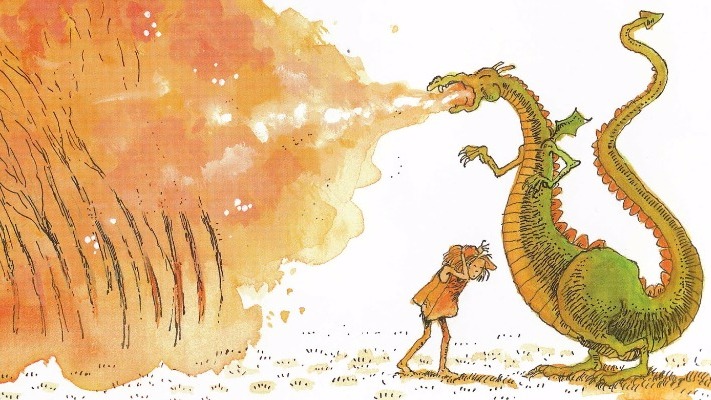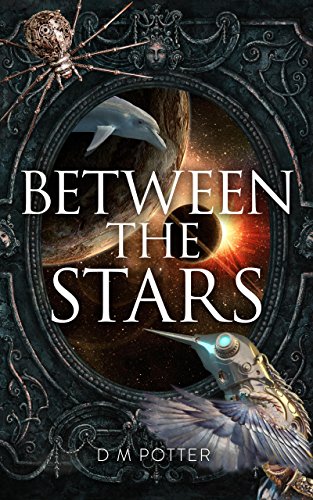Author, publisher, and full-time feminist Deb Potter on how books can open up wonderful choices for young people – or not.

I have more than one t-shirt with the word feminist on it.
Reading the word, people in lifts, supermarkets and petrol stations sometimes share their doubts with me that we need take any more action on equality. Luckily my day job involves monitoring gender inequality so I can bring my evidence base to the conversation.
Women, I tell them, take up more than half of the unemployment queue, do more than their share of unpaid work in families, earn less over their lifetime and are more likely to experience enduring poverty. If they haven’t gotten out of the lift I ask if they know that in New Zealand, males graduating with the same degree as females (and the same debt) get paid more from the start. That’s not fair. We still need feminism. (Trust me on this or the next 1692 words will have a lot more numbers than you want in an op-ed.)
Authors have been writing good feminist kids’ books since at least the seventies, when researchers reported that girl-centered stories were in the minority. The Paper Bag Princess, by Robert Munsch, came out in 1980 and it’s notable for me because of how mainstream it quickly became. By the 1990s, when I was relieving in early childhood education, I saw a battered copy in every childcare centre I visited in Wellington.
The popularity and the market for The Paper Bag Princess, and books like the more recent Ada Twist: Scientist and Not All Princesses Wear Pink, tell me that the idea that picture book content can and should question stereotypes is not contested, even though many books continue to carry them. Mainstream editors now actively avoid Blyton-type girl characters like insipid Anne pouring out lashings of ginger beer while George plays at being a boy to enter the adventure.
It’s less well understood that background characters need scrutiny too. So many times authors get it right with the main character but unconsciously deploy stereotypes around them. Step-mothers are still wicked, fathers are excused their negligence and, while modern mothers get jobs, they are often still the only one replacing the toilet roll.
There’s a persistent idea that boys don’t read books about girls. Because of this, boys aren’t always handed books about girls. Boys may be missing messages of equality entirely. For women to be able to walk alongside men in society, we need gender equality in the home. To avoid every woman fighting her own battle on the homefront we can start it in the library. It’s no coincidence that two out of three of our female prime ministers have no children.
For women to be able to walk alongside men in society, we need gender equality in the home. To avoid every woman fighting her own battle on the homefront we can start it in the library.
‘Dadult’ is a word my kids and I made up a few years ago. Definition: a Dadult is a guy who pulls his weight in a family and does the boring stuff as well as the fun stuff. When we see a man shopping for kids’ clothes at The Warehouse, without a Mum, it is rare enough for us to whisper: Dadult! When a guy goes home from work to take care of his sick kid I now think to myself: Dadult!
These unicorn Dadults are not always born on the same day as their first child. Like mothers, it takes years of socialisation for a person to pull their weight in a household, without any thought of getting a medal. Instead I imagine they have thoughts like this: Hey, I should do those dishes because they are there and We need milk. I’ll go get it. Might as well go to the supermarket because we need eggs and oh look asparagus is at a good price now…. hope I get home before it starts raining so I can get the washing in. That kind of thinking leads to more revolutionary thoughts such as I’m going to go to four days a week at work for a few years because then my partner can work four days and both of our careers can progress together and we can both be parents to our kids.
I want to ask the Dadults I see what their childhood was like and what was on their bookshelves.
Reading gets kids ready for adulthood – being both independent and dependable. If boys are not being exposed to provocative literature that dismantles structural inequality they won’t be taking part in the incremental social change that is happening all around us. It won’t happen as fast as it could.
Reading gets kids ready for adulthood – being both independent and dependable.
There are many ways we can continue to improve the situation of women and girls via kids’ lit:
- We can point out when classic stories aren’t fair and consider removing them from bookshelves. (Don’t donate them to your local charity shop though; you wouldn’t drop off lead soldiers, so why pass on toxic messages?)
- Celebrate alternative re-tellings of classic tales and tropes (such as Not All Princesses Wear Pink).
- Provide stories where diverse characters take active roles.
- Try stories that are gender neutral. Most picture books with animal characters do not need gender. Modern interactive fiction is usually gender neutral.
- Build book collections with diversity in mind – about what proportion of gendered stories on your bookshelves are about girls?
- Promote stories about girls to boys (remembering that we have always read stories about boys to girls).
- Find stories that show adult males pulling their weight in the domestic space.
- Find books about adult females taking part in the wider world, backed up by her family and friends.
I write and edit an interactive series called You Say Which Way. We write gender neutral interactive stories in the second person for any young reader to experience.
I have found that adults read You Say Which Way differently to kids. For instance, I ask kids what they imagine themselves to be like when they read Between the Stars, a story set on a British steampunk spaceship where young criminals have been sent to colonise another planet, and learn as they sleep. Kids will answer that they had to imagine they were poor, that they lived in another world, that they had the skills that their character acquires. That they could cope with spiders!
Girls do not report that they had to be a boy. However, adults have said the character is ‘obviously male’. When I unpack that, they say it is ‘because of how they behave’, ‘because they are brave’, ‘because they are out in the world on their own’. These are not the traits of a male. These are the traits of a male stereotype.

Adults are the gatekeepers of literature for kids. I grew up in the 1970s and 1980s and I did not have The Paper Bag Princess on my bookshelf. I had The Famous Five. I am trying to take the good things that the books I read gave me – autonomy and adventure and new worlds and new ideas – and consciously rework the rest.
A recent book we published is set in 16th-century Paris. When the author, Kevin Berry, suggested the setting, I was worried that we would be writing a very male-oriented book. How credible would it be that ‘you’ could take the adventure as a girl? I had my doubts. Kevin did a great job. He kept the gender of historical male characters but added women alongside them in strong roles. The day after we published it hit me that history has a HIS in it for a reason. We are not presenting an anachronism; we are presenting a possible herstory.
I don’t think our books, alone, will change the world but I think if girls feel they have a right to be in the driver’s seat and to make choices, we’ve done a good thing.
When I sign a You Say Which Way book I always write the same thing: may your life be filled with wonderful choices. That’s what responsive kids’ lit can do for society – give us wonderful choices.
Interested in the numbers?
Read about inequality in graduate pay in the Ministry of Education publication Men and Women Moving On Up.
Read more about the gender pay gap research this year.
Find out more about employment trends from the StatsNZ household labour force survey.
One in three women in New Zealand work part-time and tend to go part-time from age 30 until retirement. Men tend to use part-time work when they are studying and after age 55. The main reason women work part-time is because of caregiving responsibilities, however more women than men want to work more hours.

Editors’ note: The Reckoning is a regular column where children’s literature experts air their thoughts, views and grievances. They’re not necessarily the views of the editors or our readers. We would love to hear your response to any of The Reckonings – join in the discussion over on Facebook.
Deb Potter
Deb Potter is the founder of publishing company The Fairytale Factory and runs the writers’ collective that produces You Say Which Way interactive fiction.



